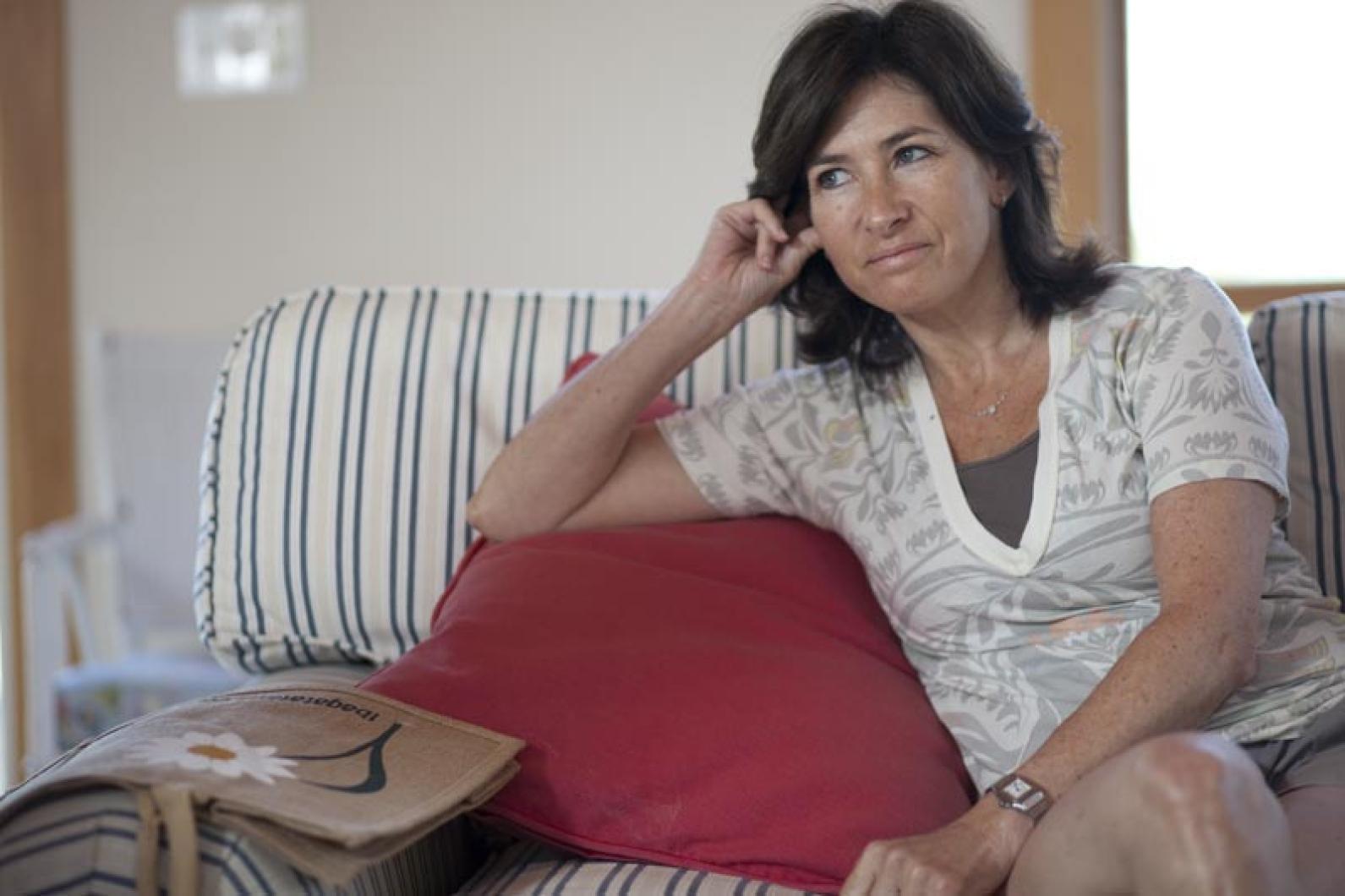Ideas germinate in funny places. With Lisa Foster, it happened in line at a supermarket in Melbourne, Australia, in early 2005 when the checkout operator asked her if she wanted a bag for her purchases.
“The woman in front of me had these big green bags with all her stuff in them,” she recalled. “And the woman behind had them. And they were both looking at me and the cashier was looking at me and clearly the answer should have been: ‘I’ve brought my own bags.’ ”
And she had not. But the store had a stack of multiuse bags nearby, for 99 cents each, so she bought some.
That was a little more than four years ago. Since then she’s sold some 10 million such bags. And counting.
“It started with the desire to fit in,” she said. In Australia, there had been a public awareness campaign, which convinced large numbers of people reusable bags were the environmentally correct thing to have.
She was struck by two things. One, that the American public had never been so informed; and two, that no comparable product was being marketed in the United States.
“I started to look into it,” she said.
“I learned 14 plastic bags contain enough petroleum to drive your car a mile, and that we use over 300 billion of them in this country every year. Ten per cent of America’s petroleum supply goes into plastic.”
Most of which is used, briefly, once.
“It’s a funny thing,” she mused. “When it’s crude oil, it has this premium value; as soon as you turn it to plastic, it’s seen as almost valueless.”
Yet there is a huge cost.
“It costs 17 cents apiece to recycle them,” she said. “But we really can’t recycle our way out of this problem. Apart from the costs in transport and reprocessing, much of it is dirty and unusable. A lot is sent off to China because we don’t know what to do with it.”
And the fact is, most people don’t even try to recycle those bags; they get thrown away, although, as she notes, there really is no “away” when it comes to plastics.
“Often the bags blow out of the trash can, or the truck, or the landfill. They get into our waterways. They pollute the seas. Turtles and things eat them instead of jellyfish.
“Even if it gets to a landfill, all of this plastic is leaching dioxin and sulfate. And dioxin is an endocrine disrupter. A gender-bender pollutant,” she said.
Already scientists have started to see mutations in other animals.
Before her six-month sojourn in Australia, Ms. Foster had always used paper bags, thinking them the more responsible way to shop. But now she warns against those, too.
“I learned they emit about 50 per cent more global warming gases than plastic bags and contribute to deforestation,” she said.
She tried to find bags of the type she got so easily in Australia, but “could not find one to save my life.”
She spoke to a couple of business people she knew, suggesting this was a big opportunity.
“I was like ‘You do this, I’m an English teacher.’
“One business person said it was a lovely idea but Americans wouldn’t go for it. Another said it was a lovely idea, but there was no money in it.”
So she began importing the bags herself and selling them from her place in California when she was there, and from her Aquinnah summer home when she was here. Her company is called 1 Bag at a Time (onebagatatime.com). Cronig’s Market on the Vineyard was one of her first customers for the customized bags.
“The first batch arrived November 2005. That was 8,000 bags. I sold them by March. By the end of 2006 I had sold 200,000 bags. The next year I sold two million and last year I sold eight million.”
Her first bags were reusable, but still plastic. More recently, she has moved into other types, to give people more alternatives to the dreaded single use plastic bag.
One is made of jute lined with vegetable starch, “so when you’re done you can go out in the yard, dig a hole, pop it in and it will just return to the earth.”
Another, more high-end variant is made of soy.
And now she also is selling bags of Tyvek.
“Dupont came after me and offered it,” she said, “and I said, ‘What’s Tyvek?’ ” It turns out to be that stuff of which FedEx envelopes are made.
She produced one of the bags, weighing almost nothing, capable of being scrunched up like a couple of tissues into a tiny ball you can keep in your pocket, purse or backpack — but capable of carrying 30 pounds of groceries.
It’s an artificial product, but it is universally recyclable, she said.
Give the woman credit for identifying a growth market. Apart from their environmental benefits, they are a great advertising opportunity for businesses professing environmental concern; Kashi, the health food company, took 250,000 for use at trade shows.
And if America ever follows the lead of other countries — like Ireland, which began taxing plastic bags 20 cents each, starting in 2002 — the attraction of alternatives can only grow.
She is lobbying in California for a tax on plastic bags, and would like to see those Australian-style government awareness campaigns in America, too.
“If you just see it [the reusable bag] as an inconvenience, or the store trying to make a buck off you, you resist,” she said. “If you know why you should do it, you’re less likely to resist.”
She sees a future of exponential growth for her business and others like it. Her ten million bag sales represent maybe one-third of one per cent of the potential market.
“I figure there are 300 million people in America, needing maybe 10 bags each,” she calculated happily.




Comments
Comment policy »